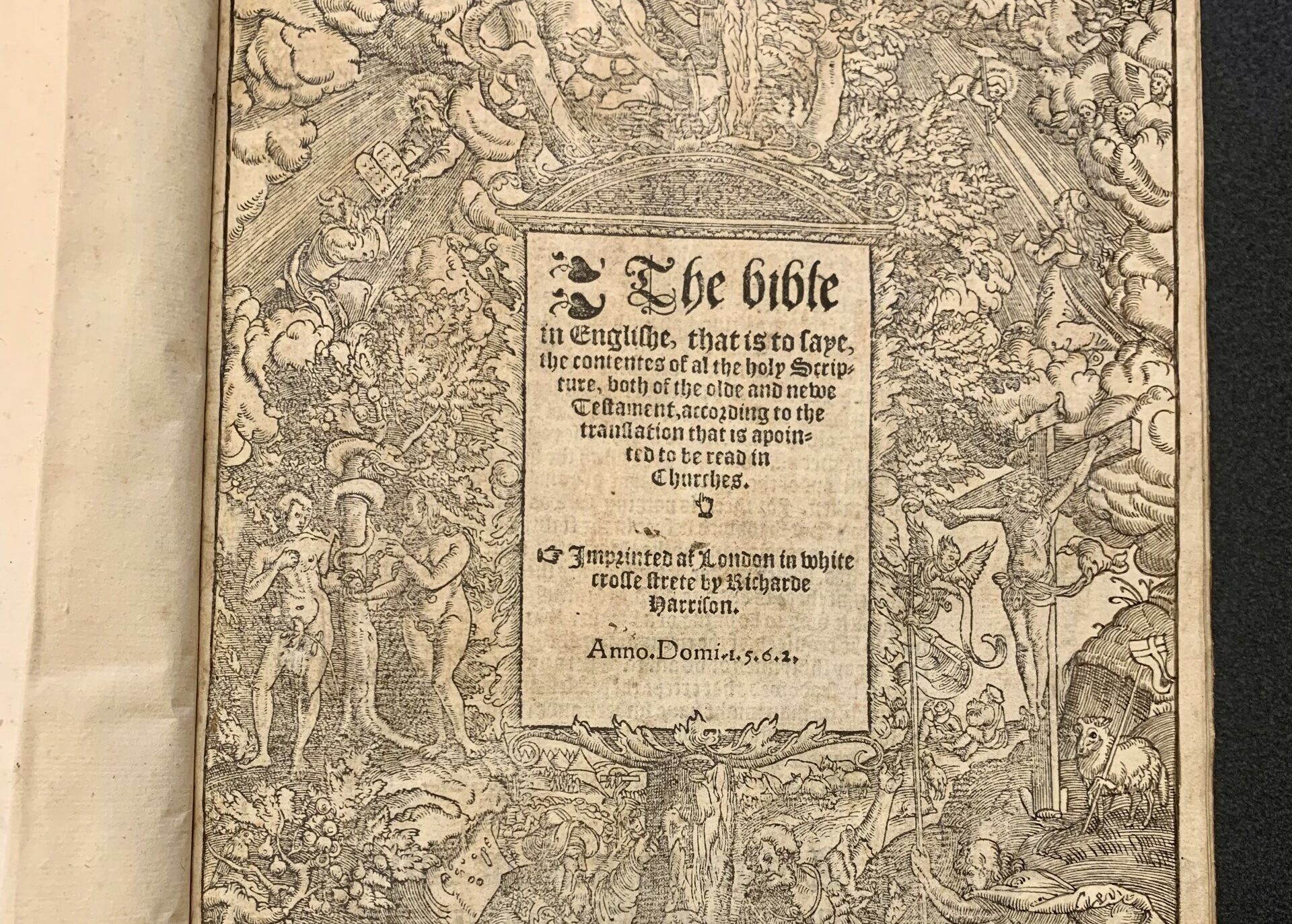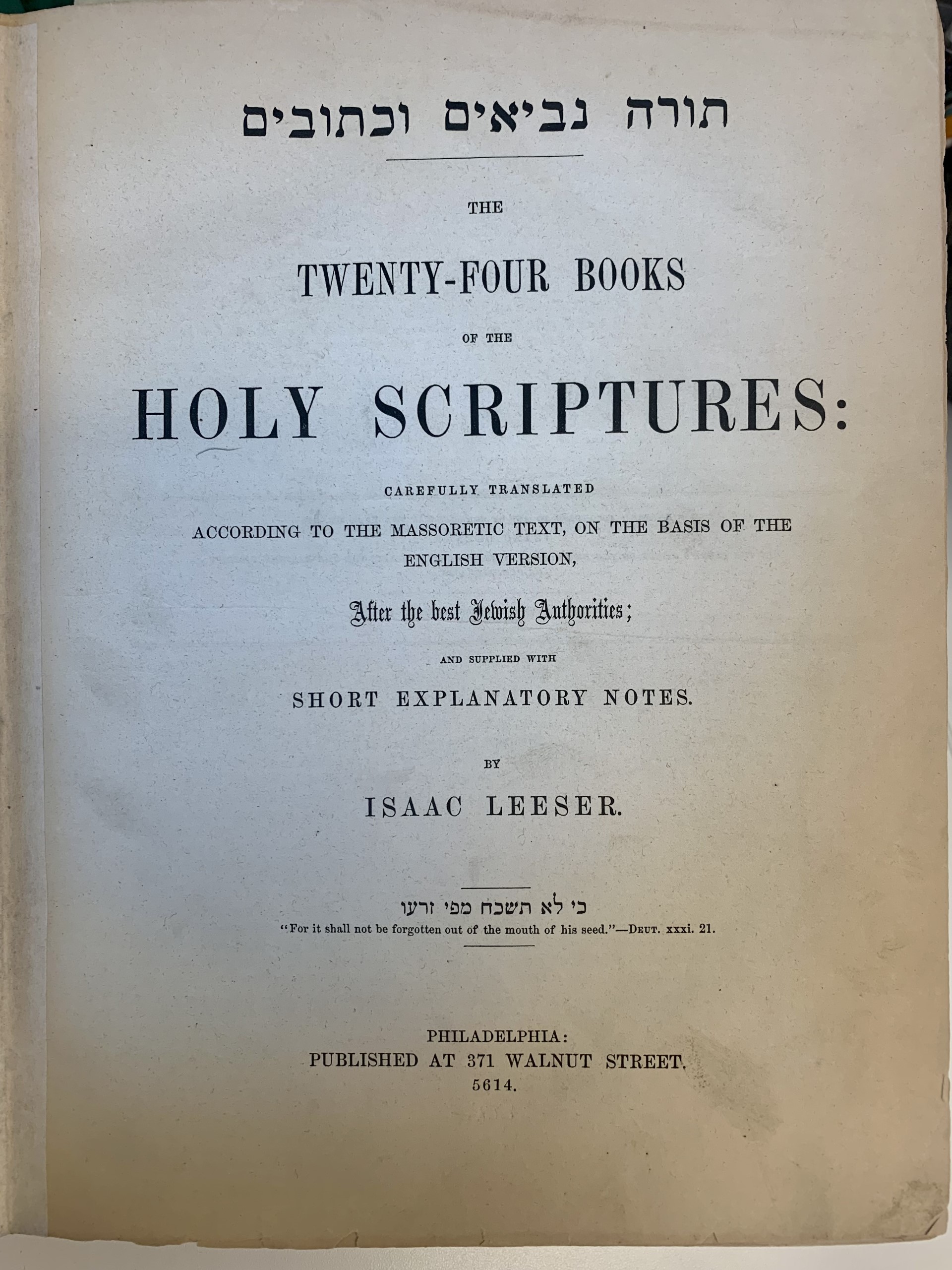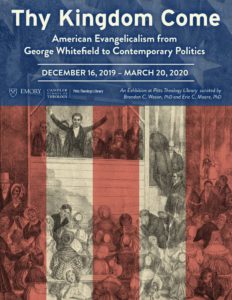The Great Bible was the first authorized translation of the Bible into English. First published in 1539 at the initiative of Thomas Cromwell and authorized by King Henry VIII, it preceded the King James Version by over 70 years. Queen Mary, Henry’s eldest daughter, reversed many of the Protestant reforms institutionalized in England during the reign of Henry and that of her immediate predecessor on the English throne, Edward VI. It was not until the reign of Elizabeth I that publication of the Great Bible resumed.
The 1562 printing of the Great Bible in the J. Michael Morgan English Bible & Psalmody Collection is remarkable for a number of reasons. Its current binding in full morocco with gilt covers and spine was done in the 19th century by Tuskett, royal binder to Queen Victoria. The title page woodcut is based on Lucas Cranach’s Allegory of Law and Grace, familiar from many German Luther Bibles. Finally, it is perhaps noteworthy that the recent re-authorization of this translation did not prevent the printer of this edition, Richard Harrison, from being fined for printing it without a license.
Dozens of treasures from the Morgan Collection are featured in our current exhibition “The Very Meanest Translation: Reading, Revising, and Replacing the King James Bible in America,” open until December 2023 and available as a virtual tour. The gallery is open to visitors during all of the library’s open hours (visit pitts.tl/hours for complete information).
By Armin Siedlecki, Head of Cataloging and Rare Book Cataloger






 As the fall exhibition at Pitts comes to a close, we look forward to a new one on the horizon! From December 16, 2019 to March 20, 2020, Pitts will feature “Thy Kingdom Come: American Evangelicalism from George Whitefield to Contemporary Politics” curated by Brandon Wason and Eric Moore. Following the 250 year legacy of George Whitefield, this exhibition pushes against monolithic portrayals of Evangelicalism in the media and seeks to show the significance of this movement within the broader American culture. Stay tuned for details about tours, digital tools, and more!
As the fall exhibition at Pitts comes to a close, we look forward to a new one on the horizon! From December 16, 2019 to March 20, 2020, Pitts will feature “Thy Kingdom Come: American Evangelicalism from George Whitefield to Contemporary Politics” curated by Brandon Wason and Eric Moore. Following the 250 year legacy of George Whitefield, this exhibition pushes against monolithic portrayals of Evangelicalism in the media and seeks to show the significance of this movement within the broader American culture. Stay tuned for details about tours, digital tools, and more!